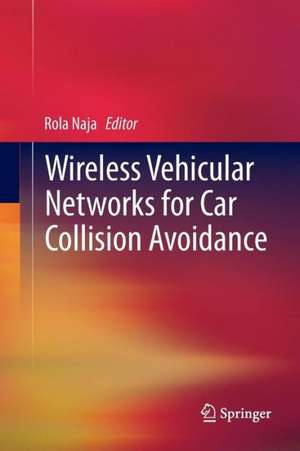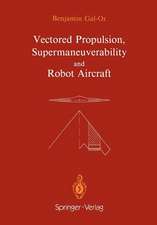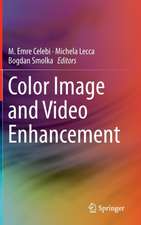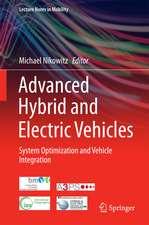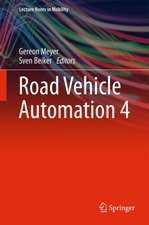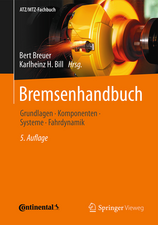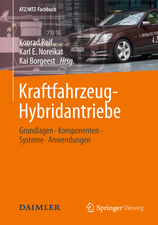Wireless Vehicular Networks for Car Collision Avoidance
Editat de Rola Najaen Limba Engleză Paperback – 14 iun 2015
| Toate formatele și edițiile | Preț | Express |
|---|---|---|
| Paperback (1) | 944.36 lei 6-8 săpt. | |
| Springer – 14 iun 2015 | 944.36 lei 6-8 săpt. | |
| Hardback (1) | 948.92 lei 6-8 săpt. | |
| Springer – 22 mai 2013 | 948.92 lei 6-8 săpt. |
Preț: 944.36 lei
Preț vechi: 1151.66 lei
-18% Nou
Puncte Express: 1417
Preț estimativ în valută:
180.70€ • 189.17$ • 149.52£
180.70€ • 189.17$ • 149.52£
Carte tipărită la comandă
Livrare economică 05-19 aprilie
Preluare comenzi: 021 569.72.76
Specificații
ISBN-13: 9781489994158
ISBN-10: 1489994157
Pagini: 292
Ilustrații: XXVI, 264 p.
Dimensiuni: 155 x 235 x 19 mm
Greutate: 0.41 kg
Ediția:2013
Editura: Springer
Colecția Springer
Locul publicării:New York, NY, United States
ISBN-10: 1489994157
Pagini: 292
Ilustrații: XXVI, 264 p.
Dimensiuni: 155 x 235 x 19 mm
Greutate: 0.41 kg
Ediția:2013
Editura: Springer
Colecția Springer
Locul publicării:New York, NY, United States
Public țintă
ResearchCuprins
A Survey of Communications for Intelligent Transportation Systems.- Quality of Service Provisioning in Wireless Vehicular Networks: Challenges and Mechanisms.- Message dissemination in VANET: protocols and performances.- Rear End Collision: Causes and Avoidance Techniques.- Chain Collision Accident: Causes and Avoidance Techniques.- Lane Change and Overtaking Collisions: Causes and Avoidance Techniques.- Intersection Collision: Causes and Avoidance Techniques.- Cars and Pedestrians Collision: Causes and Avoidance Techniques.
Notă biografică
Prof. Naja is a member of the PRiSM research group (Parallelism, Networking, Systems and Modelling - www.prism.uvsq.fr/) at University of Versailles (France) and is affiliated with the ESIEE-Engineering (École Supérieure d'Ingénieurs en Électronique et Électrotechnique-Chamber of Commerce and Industry in Paris, France - www.esiee.fr/).
Dr. Naja obtained her PhD in Computer Networking from the Telecom ParisTech (ENST-Paris). Her research studies lie in the area of resource allocation and mobility handling in wireless mobile multiservice networks. Dr. Naja collaborated with a number of scientists on international projects: Ambience for Ambient Intelligence, Minicell For Quality of Service in UMTS, Co-Drive for Cooperative Driving and others.
She has authored highly ranked research papers published in leading international journals and in International conferences dealing with network modeling and performance, network adaptability and quality of service provisioning.
Dr. Naja obtained her PhD in Computer Networking from the Telecom ParisTech (ENST-Paris). Her research studies lie in the area of resource allocation and mobility handling in wireless mobile multiservice networks. Dr. Naja collaborated with a number of scientists on international projects: Ambience for Ambient Intelligence, Minicell For Quality of Service in UMTS, Co-Drive for Cooperative Driving and others.
She has authored highly ranked research papers published in leading international journals and in International conferences dealing with network modeling and performance, network adaptability and quality of service provisioning.
Textul de pe ultima copertă
Wireless Vehicular Networks for Car Collision Avoidance focuses on the development of the ITS (Intelligent Transportation Systems) in order to minimize vehicular accidents. The book presents and analyses a range of concrete accident scenarios while examining the causes of vehicular collision and proposing countermeasures based on wireless vehicular networks. The book also describes the vehicular network standards and quality of service mechanisms focusing on improving critical dissemination of safety information. With recommendations on techniques and protocols to consider when improving road safety policies in order to minimize crashes and collision risks.
Caracteristici
Presents the vehicular wireless technology required in order to interconnect vehicles to an intelligent cooperative communicating infrastructure
Demonstrates how wireless technology in cars can avoid vehicular accidents by providing active roadway safety
Covers concrete accident scenarios and provides countermeasures based on wireless networks
Demonstrates how wireless technology in cars can avoid vehicular accidents by providing active roadway safety
Covers concrete accident scenarios and provides countermeasures based on wireless networks
